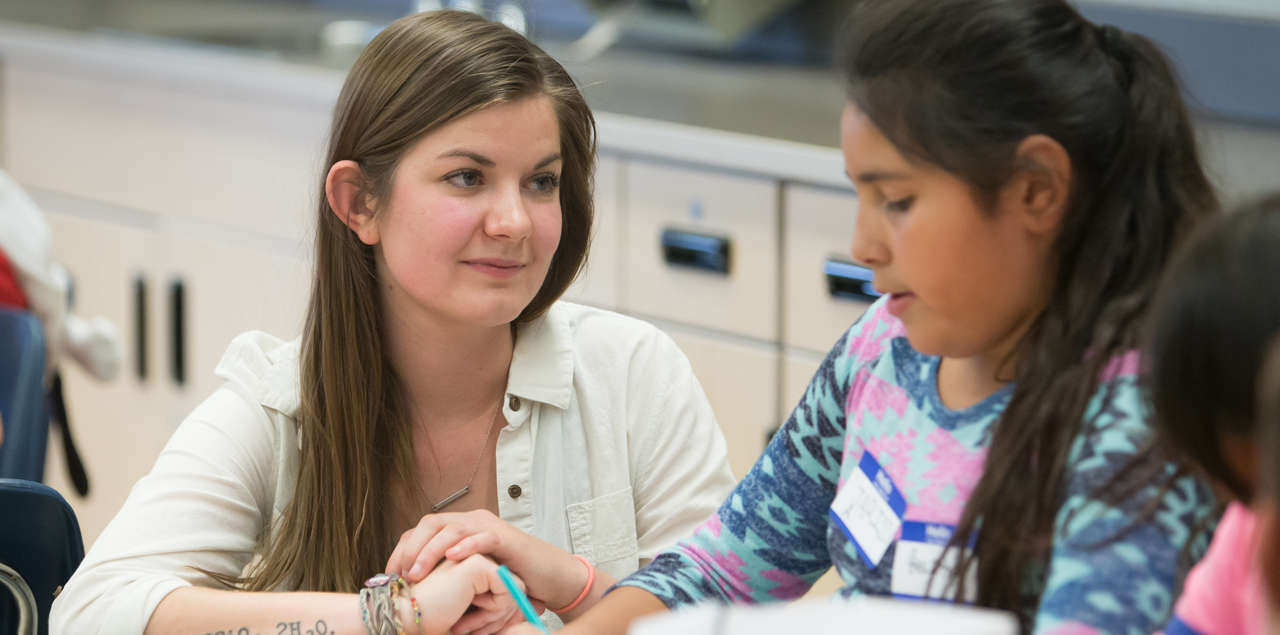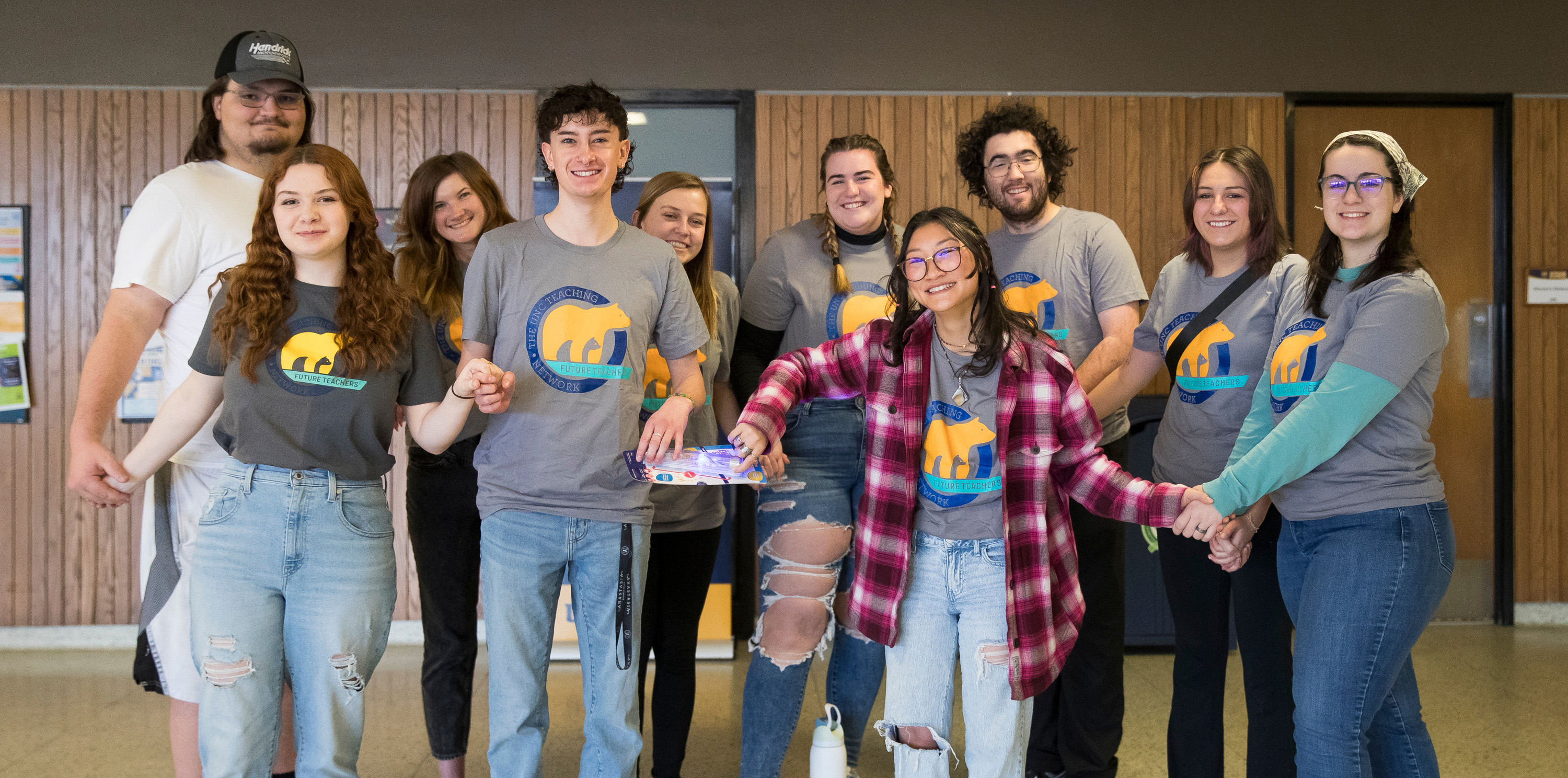
A five-year stint in student affairs attuned Sam Waters to first- and second-year college students' needs. Now he's exploring early college students' statistical literacy as part of his University of Northern Colorado's Mathematics Education Ph.D. program dissertation.
Statistical literacy — the ability to read and interpret numeric information as presented in tables, graphs, and text — is key to comprehension. Waters' research will help gauge how well students in introductory statistics courses understand what they're learning outside typical classroom applications. He believes having them engage with media-based contexts will illustrate their comprehension level.
"...this research is very much getting at that idea about how we can make sure that students leaving these courses have the skills to be engaged and informed critical consumers of news."
— Sam Waters

Sam Waters
"I came to this topic by thinking about the big things I would want a student to get out of a statistics course if it was the only statistics course they were ever going to take. Conversations over the past five to 10 years about the news and data have stressed the importance of having a sense of where data is coming from and a healthy skepticism of the messages we're receiving in the media space," Waters said.
It was important to him that the average person could find relevance in his work. When people become more aware of how political and commercial agendas could shape messages, they can better judge their accuracy and trustworthiness. Waters said this is part of creating an informed, engaged public citizenry, vital to a healthy democracy.
"The message isn't that you can't trust anything and that everybody is trying to manipulate us. But this research is very much getting at that idea about how we can make sure that students leaving these courses have the skills to be engaged and informed critical consumers of news," he said.
The project is a mixed methods study utilizing both qualitative and quantitative data collection and analysis. One step involves students reading a headline and a short article that includes statistical information and answering questions about what they read. Waters' coursework is in mathematics and mathematics education, so his statistics-focused dissertation required exploring the related field of statistics education to learn about the field's big questions and problems.
"My coursework built baseline skills on research methods, design and developing a conceptual framework for dealing with different theories of learning. It helped me have a sense about how to approach a problem and gave me the skills to dive into the field of statistics education and develop my own project," Waters said.
When crafting his research proposal, Waters realized he wasn't happy with his initial data collection and analysis plan. He turned to Lindsay Reiten, Ph.D., associate professor in the College of Natural and Health Sciences' Department of Mathematical Sciences.
"She helped me unpack why my plan wasn't getting me to the place that I wanted in terms of being able to answer my questions. There ended up being a significant overhaul to that portion of the study that she was able to help me work through," Waters recalled.
Reiten said Waters is motivated and dedicated.
“Sam is a committed student and instructor in our program; he seeks a depth of knowledge and willingly addresses growth areas. For example, to improve his knowledge about teaching with technology, he worked with me during a summer project to develop an undergraduate teacher preparation course focused on teaching mathematics with technology," Reiten said.
Reiten believes Waters' research is particularly useful for college or high school introductory statistics courses.
"His research has the potential to give insight for how we might better prepare students to critically engage in or examine the plethora of data that is all around them, particularly the ways in which data is often used to mislead students or to tell a story. It has the potential, both in task design as well as in instruction, to better prepare students," she said.
When he graduates in May 2025, Waters plans to apply for faculty positions in a math department.
"I'm hoping to continue to teach undergraduate math courses. I gravitate toward the first- and second-year college student population who are getting started in their degree programs or folks who are taking math and statistics courses as part of a liberal arts curriculum. I anticipate continuing to expand on this research, and I also would really love to be able to have some sort of role or responsibility that ties into my background in student affairs," he said.
More Stories
-
Open Educational Resources Save Students Nearly $500,000 in Course Costs This Past Year
Este artículo no está en español.
-
The Impact of Physical Activity in Early Childhood Classrooms
Este artículo no está en español.
-
Doctoral Student Finds Alarming Rate of Secondary Traumatic Stress in Teachers
Este artículo no está en español.
-
Future Teacher Conference Celebrates 10 Years, Expands Audience Internationally
Este artículo no está en español.





